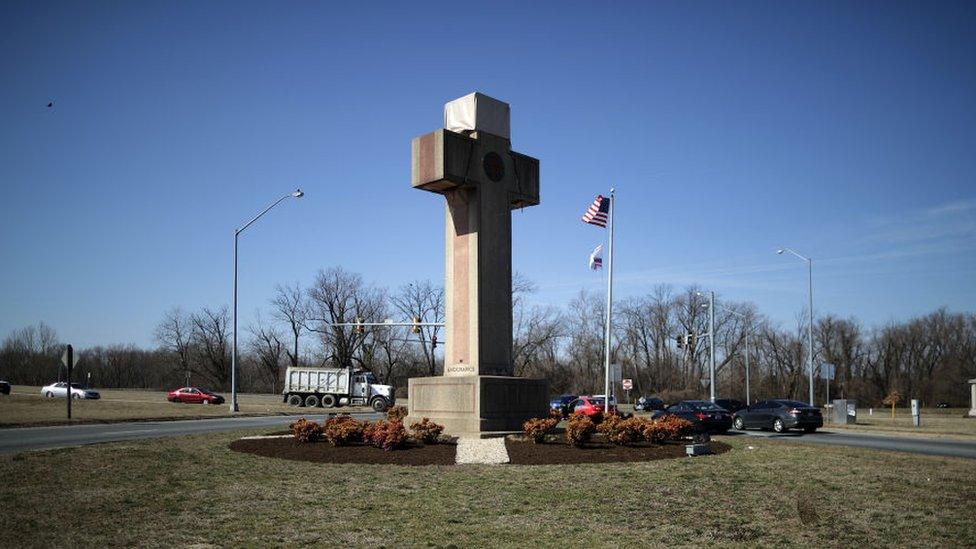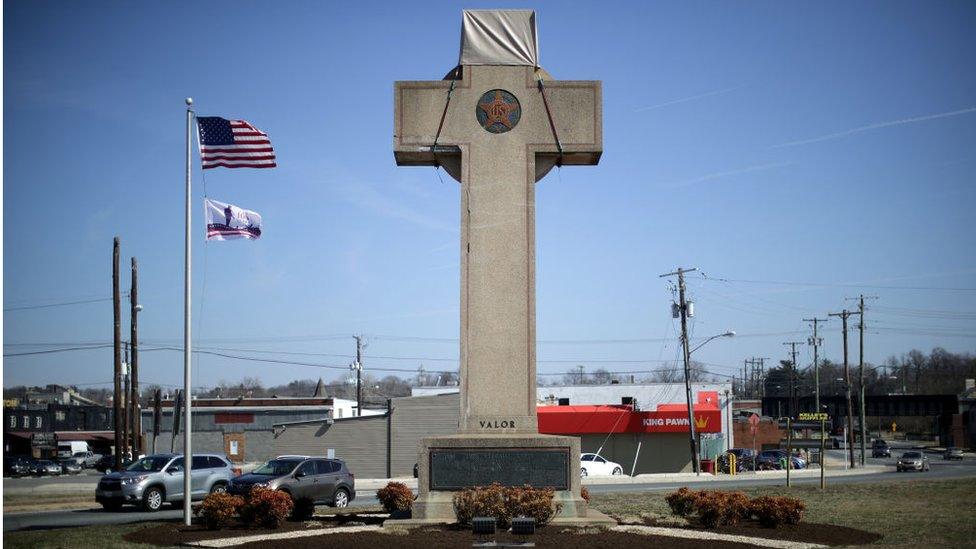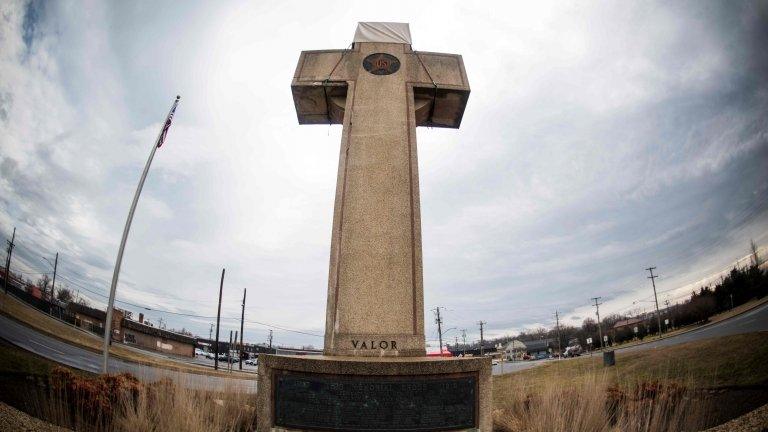US Supreme Court rules WW1 cross can remain on state land
- Published

The US Supreme Court has ruled that a concrete cross honouring World War One soldiers can remain on state land, reversing a lower court decision.
The American Humanist Association had sued to remove the Bladensburg, Maryland, monument, saying it was an unlawful endorsement of Christianity.
But the top court said the 94-year-old cross was a "historical landmark" and destroying it would be disrespectful.
Justices Ruth Bader Ginsburg and Sonia Sotomayor dissented in the 7-2 vote.
Two of the court's liberals, Justice Stephen Breyer and Justice Elena Kagan, joined the five conservatives in the majority.
The American Legion, which holds commemorative events at the site, had said the memorial merely honoured veterans and was not religious.
Justice Samuel Alito penned the court's majority opinion.
He acknowledged the 32ft (9.7m) cross was "undoubtedly a Christian symbol".
But he wrote that the monument had come to represent "a symbolic resting place for ancestors who never returned home, a place for the community to gather and honour all veterans and their sacrifices for this Nation, and a historical landmark".
As such, the court's majority concluded, destroying or defacing the Bladensburg Cross "would not be neutral and would not further the ideals of respect and tolerance embodied in the First Amendment".
Justice Ginsburg, in the dissent, wrote that the cross violated the Establishment Clause of the First Amendment - that "demands governmental neutrality among religious faiths and between religion and non-religion".
She added: "By maintaining the Peace Cross on a public highway, the Commission elevates Christianity over other faiths, and religion over non-religion."
But the majority concluded that due to the passage of time, "there was no way to be certain about the motivations" of the monument's creators.
"And this is often the case with old monuments, symbols, and practices," Justice Alito wrote. "Yet it would be inappropriate for courts to compel their removal or termination based on supposition."
The American Humanist Association said in a statement following the ruling that their "legislative efforts will be redoubled...to strengthen the wall of separation between church and state".
The group also said that the majority opinion "fails to honour the sacrifice of Jewish soldiers that went intentionally unrecognised" in the memorial.

The cross honours fallen World War One soldiers from Prince George's County
While some local residents had joined the association's lawsuit against the landmark, other organisations, including the Veterans of Foreign Wars group, had petitioned to save the cross.
They said its removal could affect similar memorials across the country, including Arlington National Cemetery.
Wednesday's ruling does not offer a blanket support of all similar displays, however.
Justice Alito noted: "Retaining established, religiously expressive monuments, symbols, and practices is quite different from erecting or adopting new ones. The passage of time gives rise to a strong presumption of constitutionality."
The Supreme Court's conservative majority has previously been swayed by religious freedom arguments.
They have defended the right to public prayer, allowed religious institutions to receive public funds for secular purposes, and determined that family-owned companies should not be forced to cover birth control.
- Published12 May 2019
